|
|
|
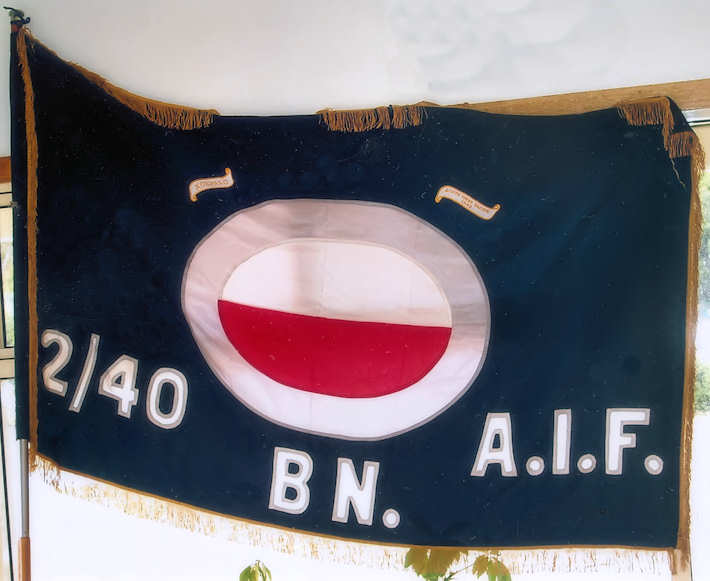 2/40th march banner 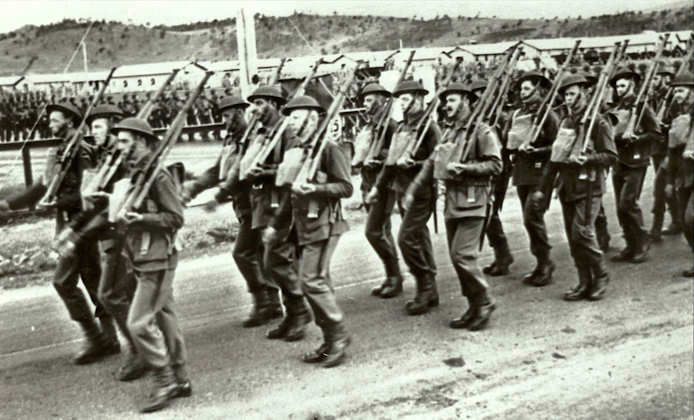 Leaving Brighton camp 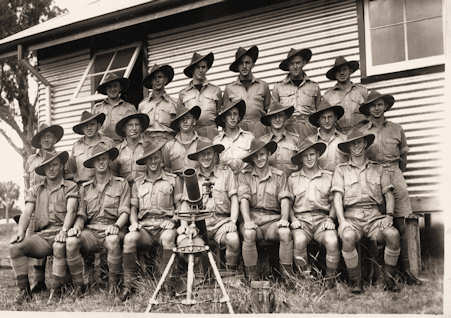 HQ 3 platoon (mortars) 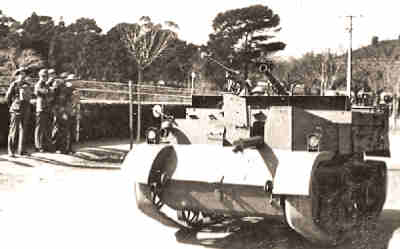 Universal carrier 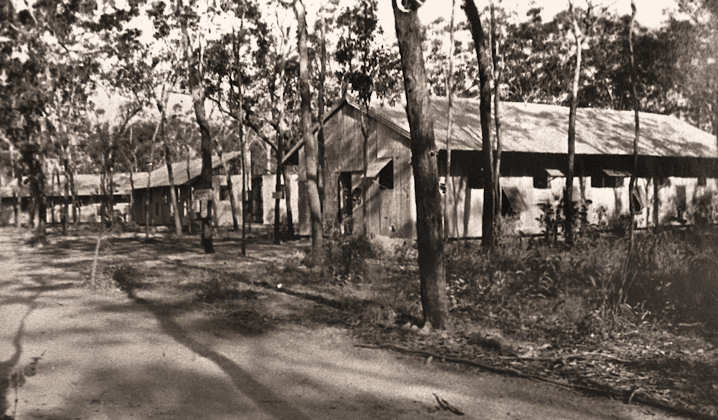 Noonamah camp |
PRE-EMBARKATION...
The story of Sparrow Force begins with the 2/40th Infantry Battalion
in Tasmania, in mid-1940. Colonel
G.A.D. Youl was announced commander of 2/40th on 1st July and a
recruiting drive was launched;
many
men transferred from local militia units. A
training
camp was established at Brighton, just north of Hobart city and the
battalion strength continued to grow through September to the end of
the year.
On 7th January1941, the 2/40th departed Hobart on the Zealandia
and arrived in Melbourne two days later.
Then they entrained to Bonegilla in northern Victoria near
Albury, where training continued alongside two Victorian battalions,
the 2/21st and 2/22nd. These three units comprised the 23rd Brigade
of the 8th Division and they were all destined to defend Australia
on islands to the north.
In February 1941, some Victorian reinforcements joined the Tasmanian
2/40th. The 23rd Brigade units marched through Melbourne and Albury
in February. This show of strength reassured the public as Australia
served alongside British, Canadian,
New Zealand and South African
forces against Germany and Italy in North Africa and
later
in Europe.
At the end of March, the 2/40th left Bonegilla by train for
Adelaide. Then they continued to Alice Springs where the battalion
camped for a few days. In mid-April, the men took trucks of the
Darwin Overland Maintenance Force and travelled over four days to
Larrimah. At Larrimah they boarded Vestey meatworks train cattle
carts and continued to Katherine where they remained for a few
months. In July the companies moved closer to Darwin, to a new camp
they constructed at Noonamah, the Twenty-Eight Mile. The battalion
was essentially stationed there until
its
departure for Timor
near
the end of the year.
Although training continued, many of the men worked on roads and
bridges in the Top End. There was some discontent as they
'worked like navvies'
building roads, communications and infastructure to accommodate
other units moving north to defend Australia. They had joined up to
fight Hitler and Mussolini on the other side of the world rather
than to shovel gravel, build camps, roads and bridges.
Other units were camped around Darwin, these included other
infantry, gunners, engineers, signalers, medical personnel, service
corps, air crew and naval personnel. Some were allocated to the
'bird forces' infantry battalions as support units. Sparrow Force
was designated to secure Penfui airport on Dutch West Timor while
Gull Force was to defend Laha airfield in Ambon. Another group was
nominated as Lark Force and they were sent to Rabaul. In November
1941, Lt.-Col. Youl
of the 2/40th
was replaced by Lt.-Col. William Leggatt after friction with the
23rd Brigade commander, Brigadier Lind.
Sparrow Force comprised of the 2/40th Infantry Battalion, 2/1st
Heavy Battery, Fortress Engineers and Signals, 2/11th Field Company,
2/12th Field Ambulance, 22nd Dental Unit, 18th Anti-Tank Battery,
75th Light Aid Detachment and Australian Army Service Corps as well
as the 2nd Independent Company (Commando) destined for Portuguese
East Timor.
|
|
Copyright © 2012-2013 Please report any site problems/questions such as broken links here. |
|